Idea by
Déborah López & Hadin Charbel
Pareid
Call for ideas 2020
Monumental Wastelands
Monumental Wastelands
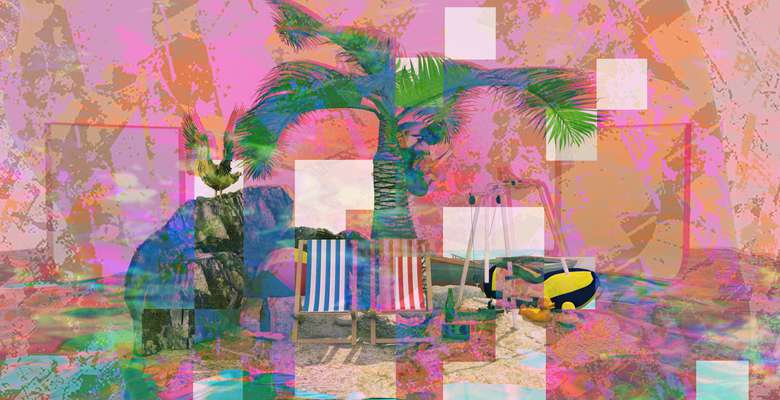
- Systemic changes
Vast production in a consumerist society has led to an endless repertoire of discarded objects.
Monumental Wastelands is a projective retrospect incorporating these byproducts as monuments within our physical and virtual territories. What is speculated here is the eventual full implementation of automation, algorithmic biases and augmented realities, that will inform how new assemblages are generated and imbued with particular qualities, characteristics, or representations; a mirroring of preferences and tastes generated by the ubiquitous data that is endlessly collected through every monitored physical and virtual interaction.
Each still is of the same thing; 3d scans of real objects and digital models of digital objects, captured at different moments in their reappraisal from unwanted rejects to polished, rendered, and reassembled realities. A confrontation is created when the universal familiarity stimulates an eerie affection.
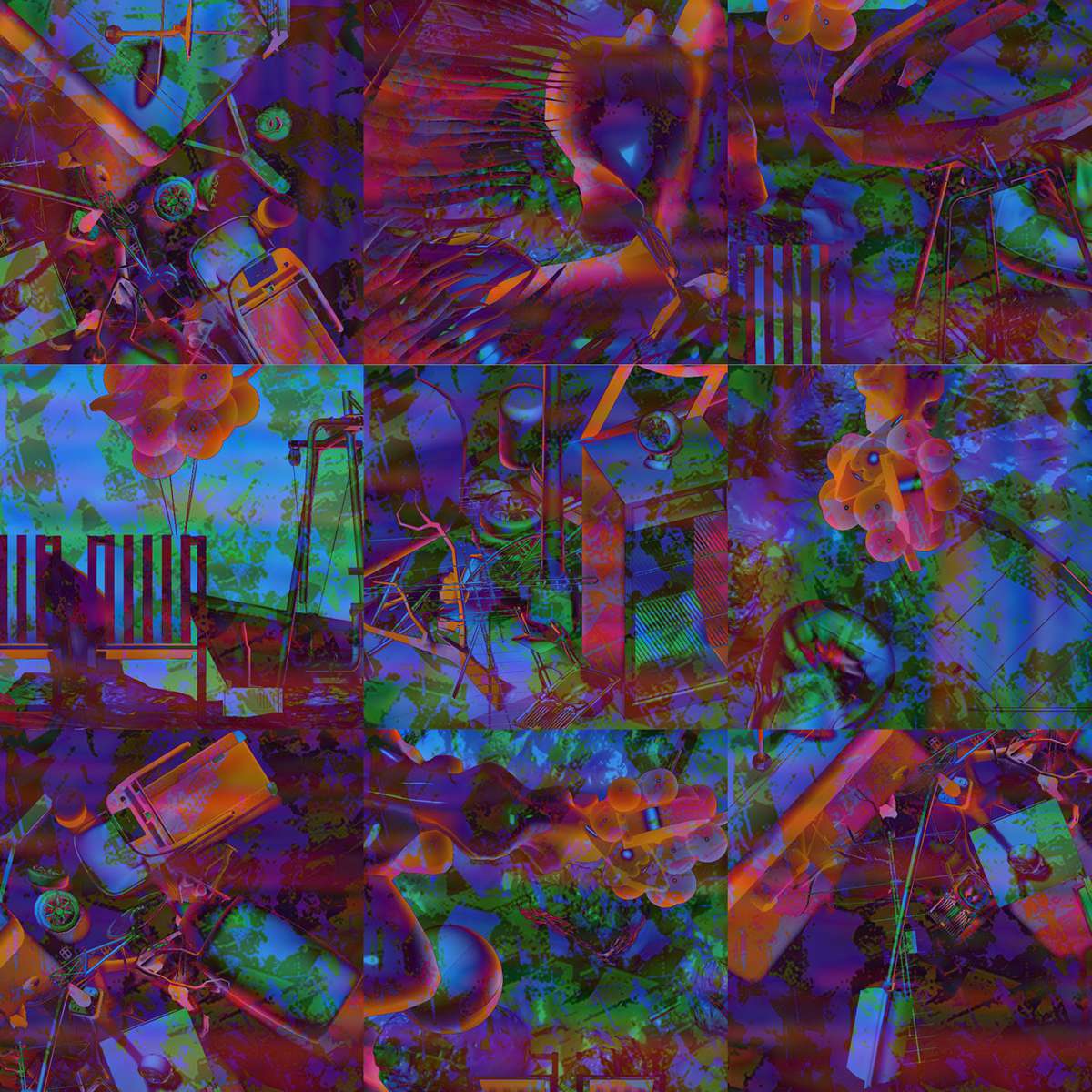
A 3x3 grid of stills where 3d scans of physical objects and digital models of digital objects are loosely configured during a digital dumpster-dive. Independent of axes, coordinates, orientation and ground, the partial or whole meanings within the disparate objects are lost, allowing for new realities to be projected onto.
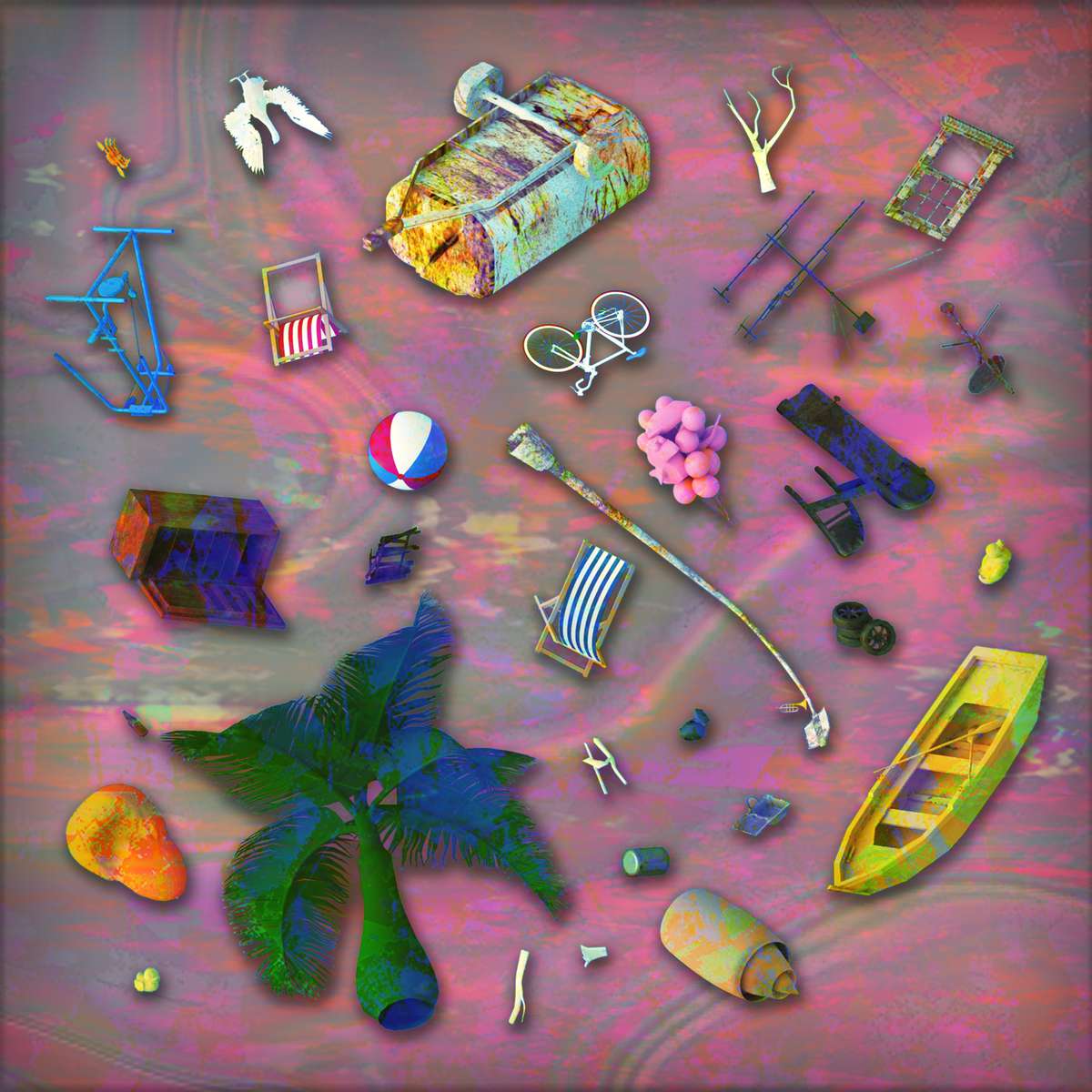
Discarded objects in the process of being sorted and polished, some of which retain their original texturing and geometries and others geometrically refined and treated with new textures.
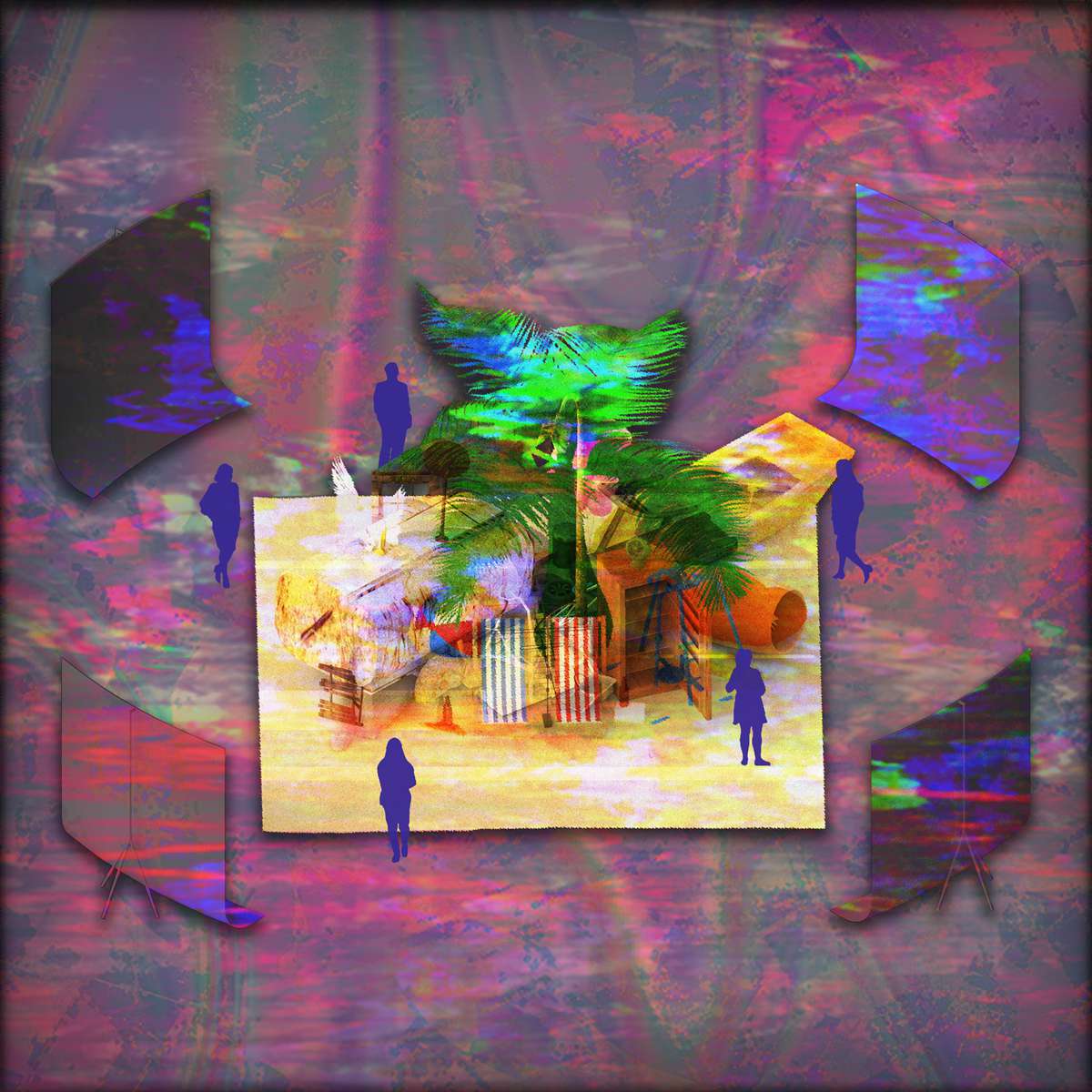
Plan view of a stage and screens fitted with scanners and projectors wherein the physical discarded objects are reconfigured to form an assemblage of dislikes and rejected items.
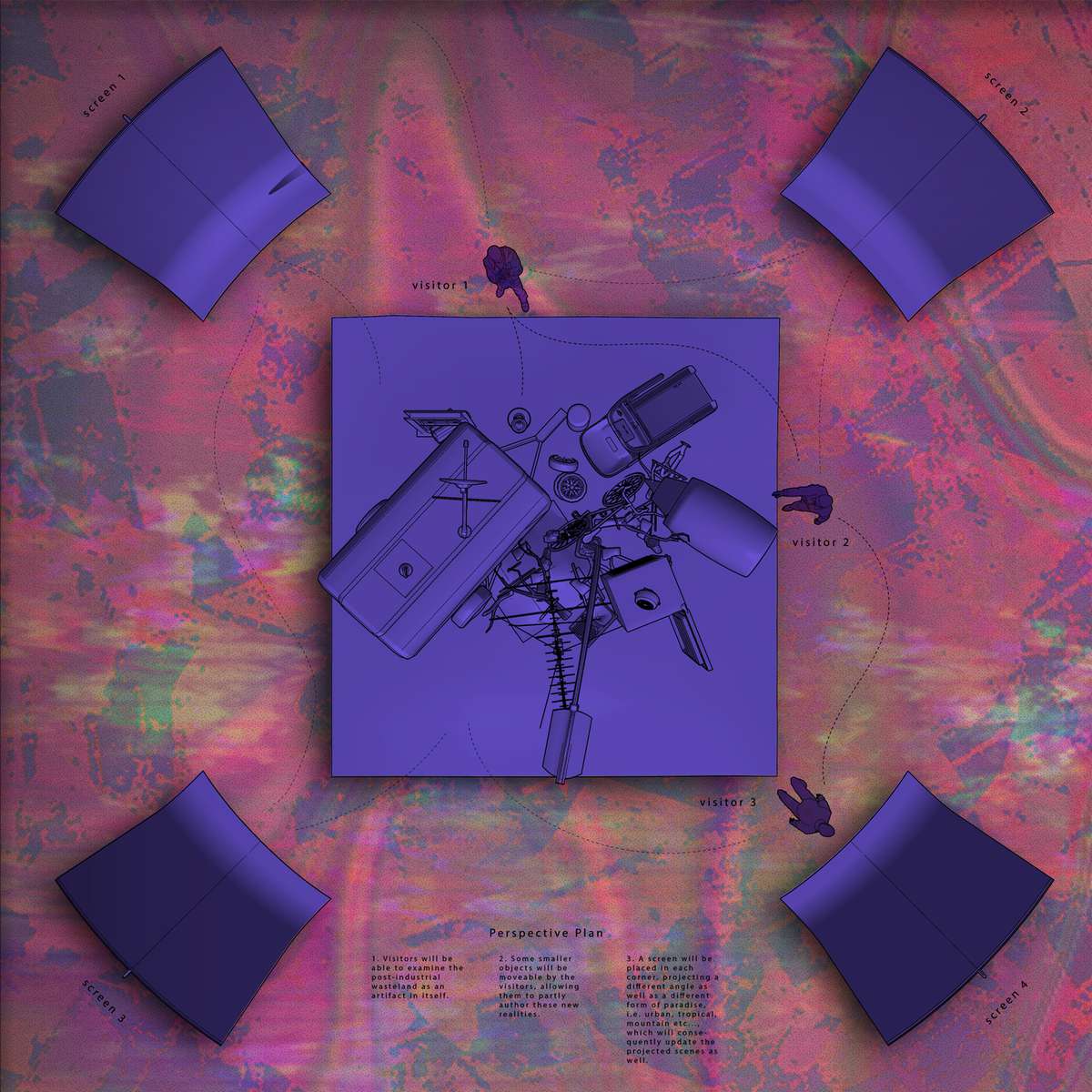
Third person perspective where the discards are reappraised through an immersive experience. The objects in the scene are read and re-written/re-textured/re-objectified according to viewer preferences.
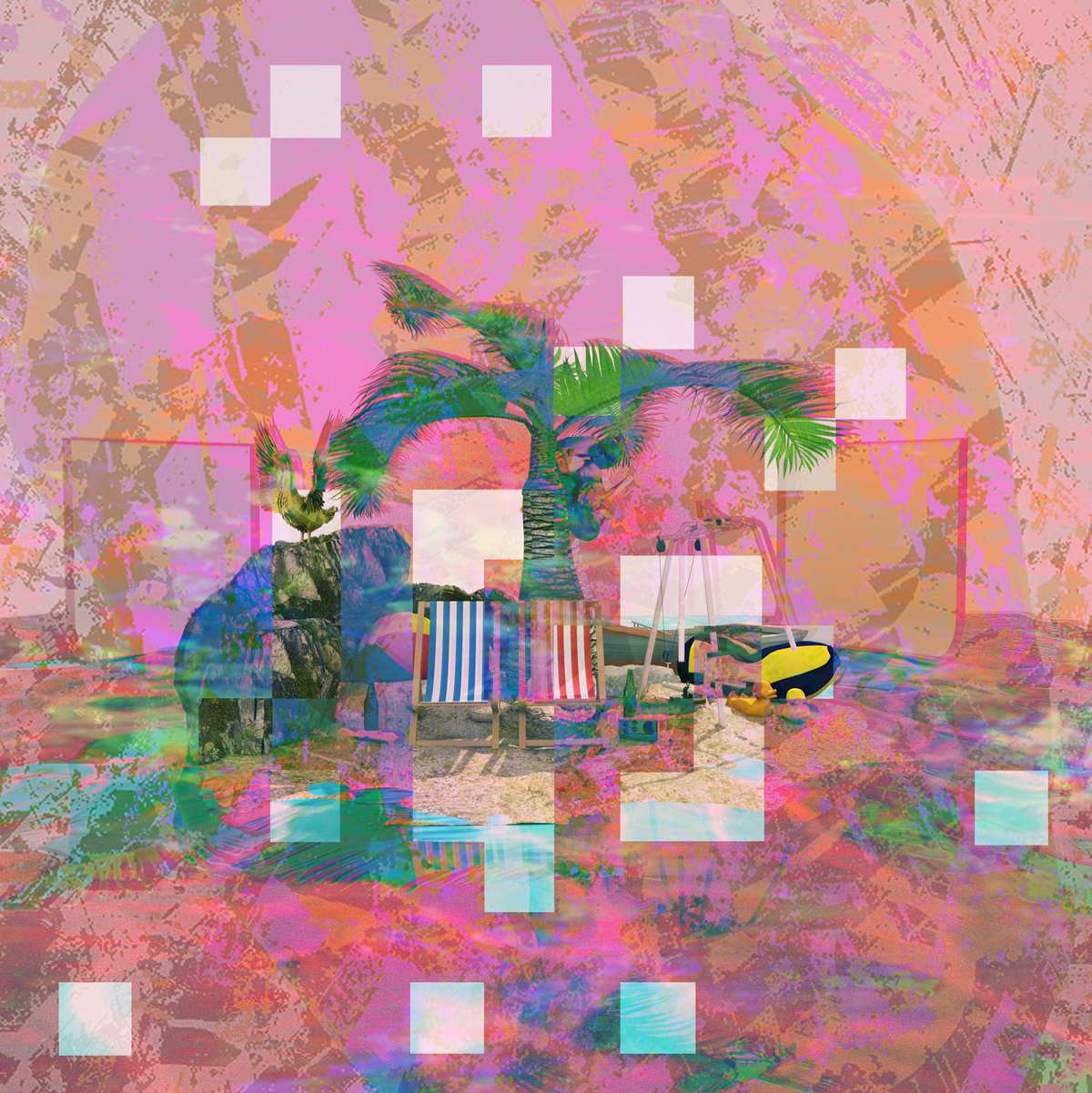
First person perspective during a refresh, wherein the scene in being updated to suit you, the viewer.
Monumental Wastelands
Monumental Wastelands

- Systemic changes
Vast production in a consumerist society has led to an endless repertoire of discarded objects.
Monumental Wastelands is a projective retrospect incorporating these byproducts as monuments within our physical and virtual territories. What is speculated here is the eventual full implementation of automation, algorithmic biases and augmented realities, that will inform how new assemblages are generated and imbued with particular qualities, characteristics, or representations; a mirroring of preferences and tastes generated by the ubiquitous data that is endlessly collected through every monitored physical and virtual interaction.
Each still is of the same thing; 3d scans of real objects and digital models of digital objects, captured at different moments in their reappraisal from unwanted rejects to polished, rendered, and reassembled realities. A confrontation is created when the universal familiarity stimulates an eerie affection.
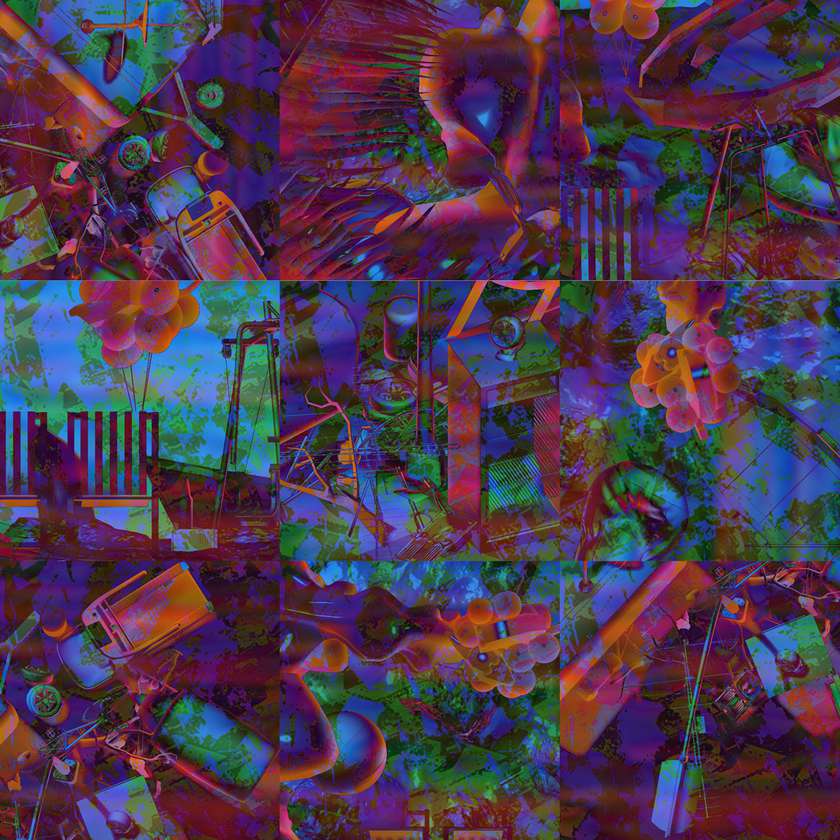
A 3x3 grid of stills where 3d scans of physical objects and digital models of digital objects are loosely configured during a digital dumpster-dive. Independent of axes, coordinates, orientation and ground, the partial or whole meanings within the disparate objects are lost, allowing for new realities to be projected onto.
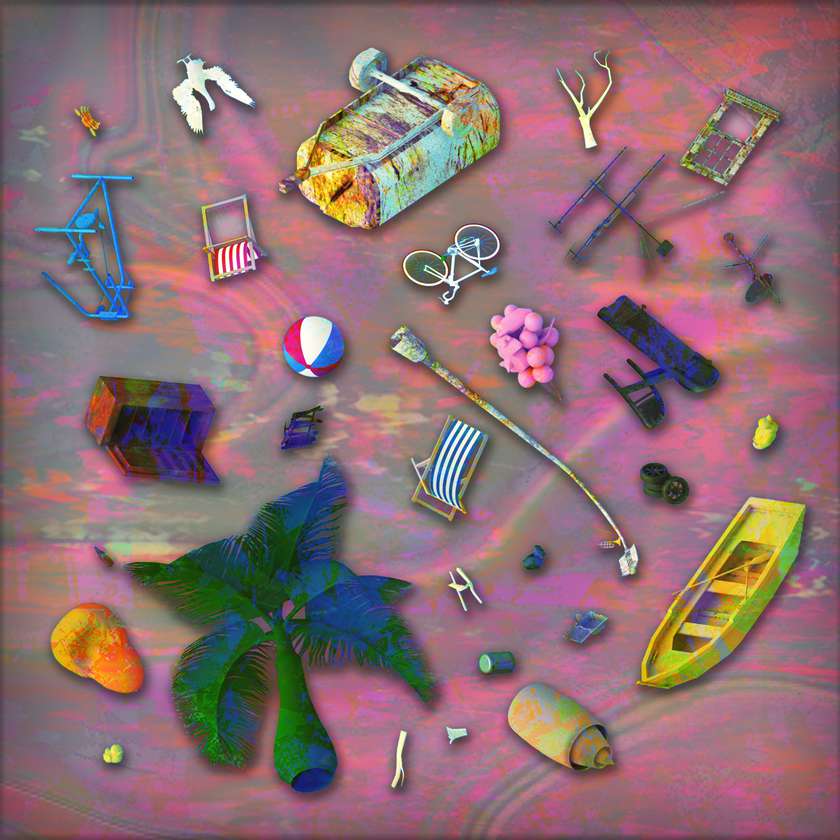
Discarded objects in the process of being sorted and polished, some of which retain their original texturing and geometries and others geometrically refined and treated with new textures.
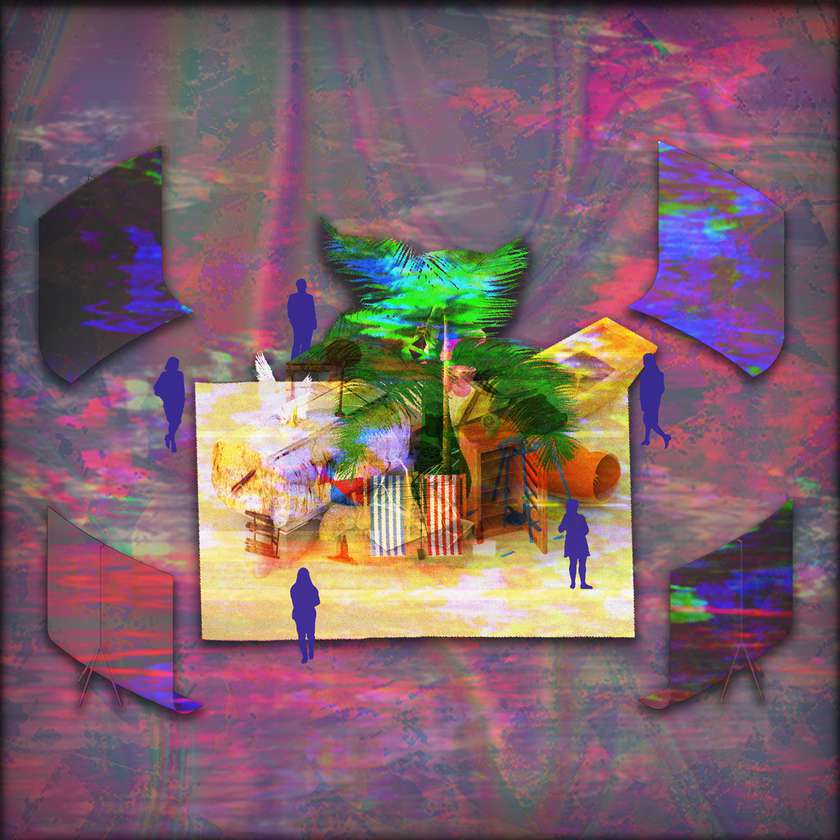
Plan view of a stage and screens fitted with scanners and projectors wherein the physical discarded objects are reconfigured to form an assemblage of dislikes and rejected items.
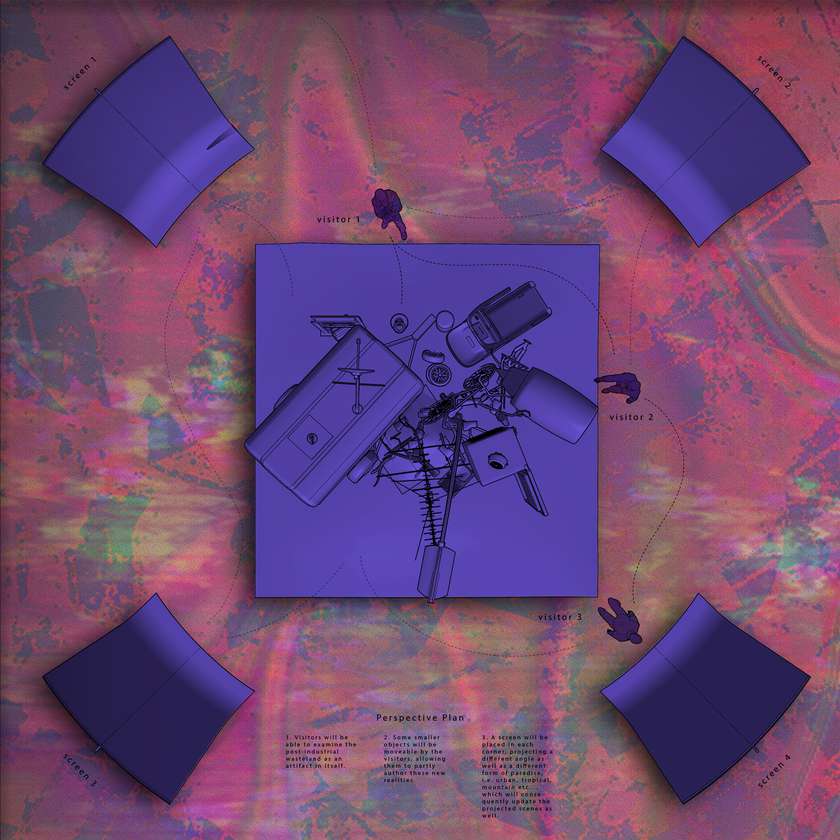
Third person perspective where the discards are reappraised through an immersive experience. The objects in the scene are read and re-written/re-textured/re-objectified according to viewer preferences.
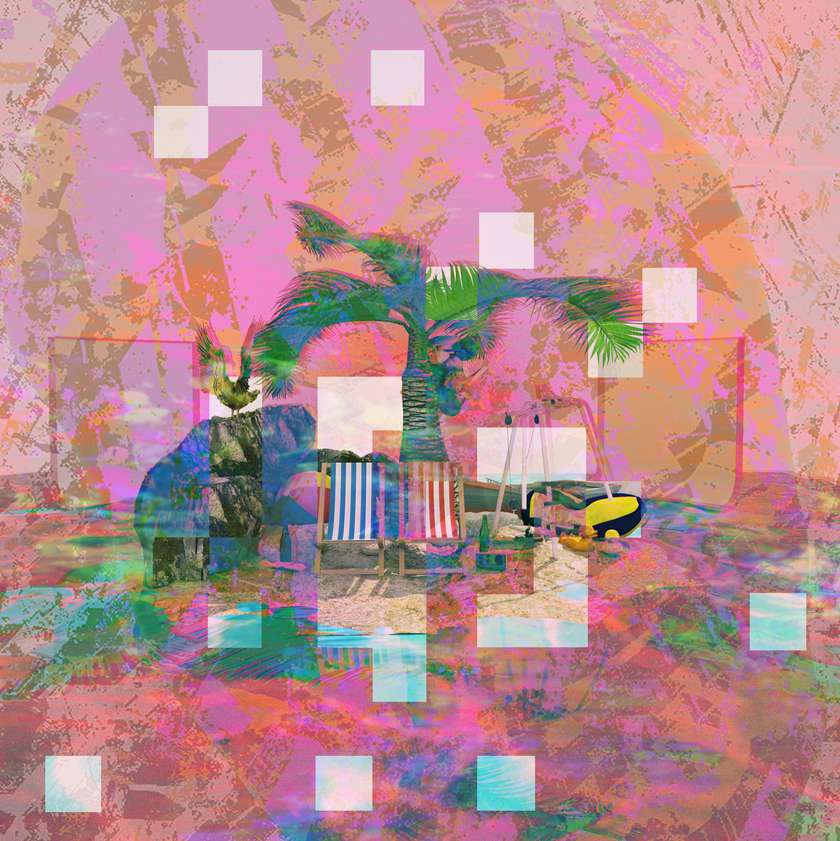
First person perspective during a refresh, wherein the scene in being updated to suit you, the viewer.